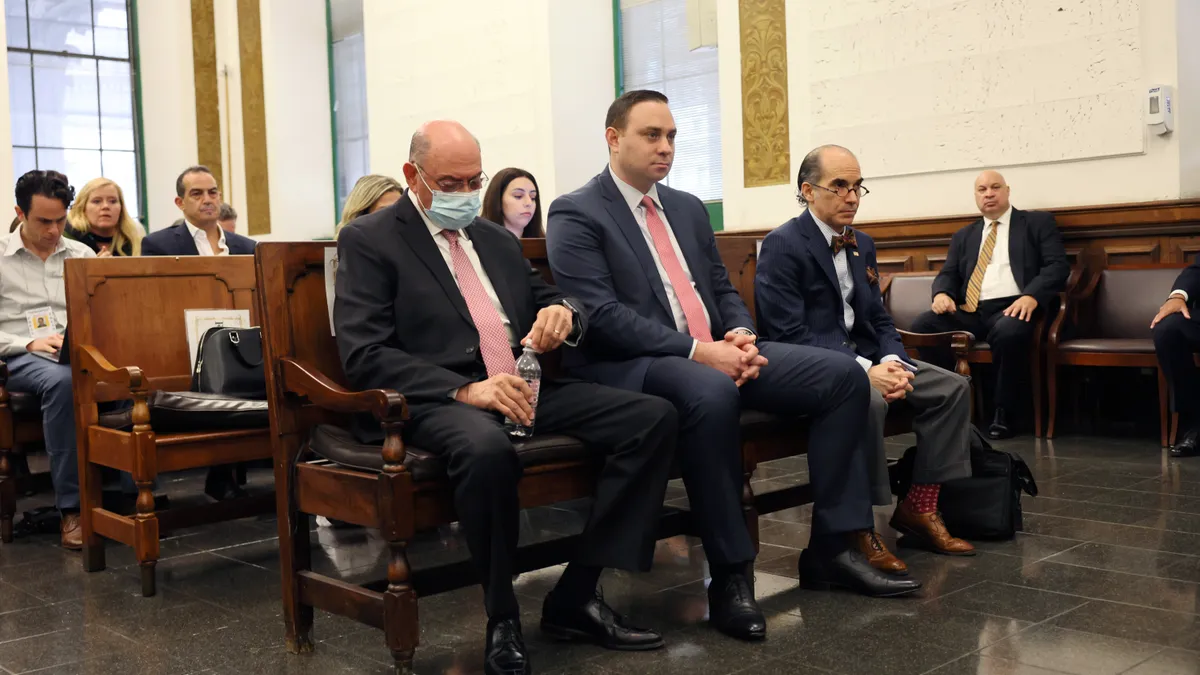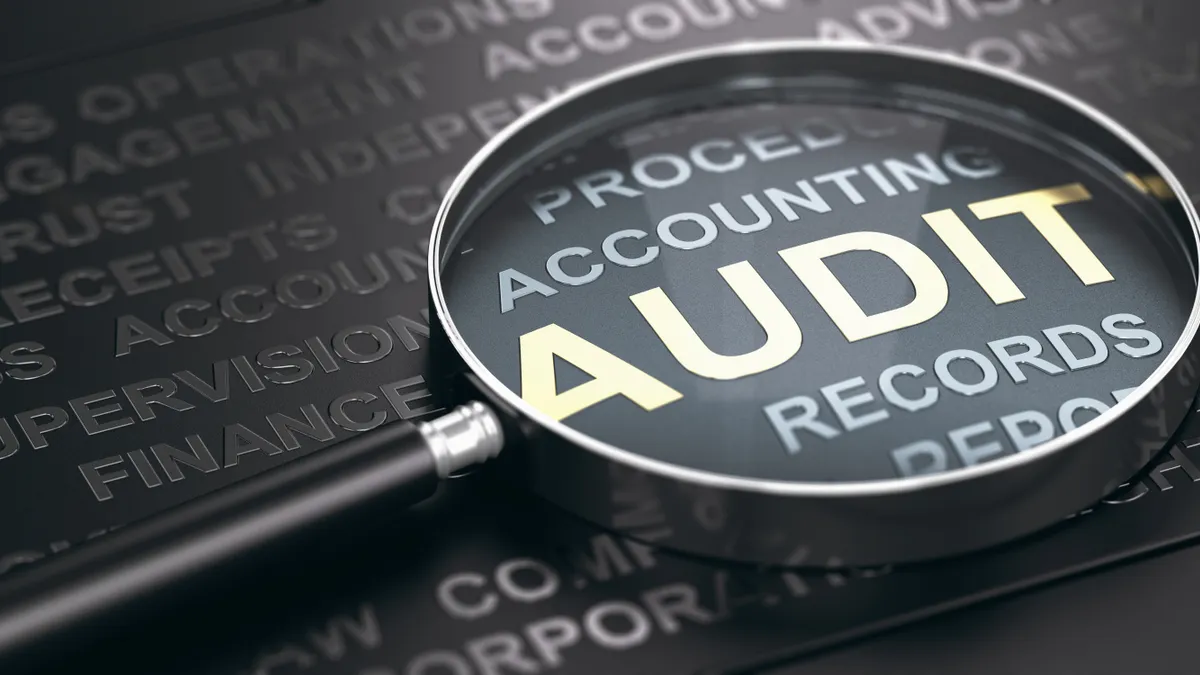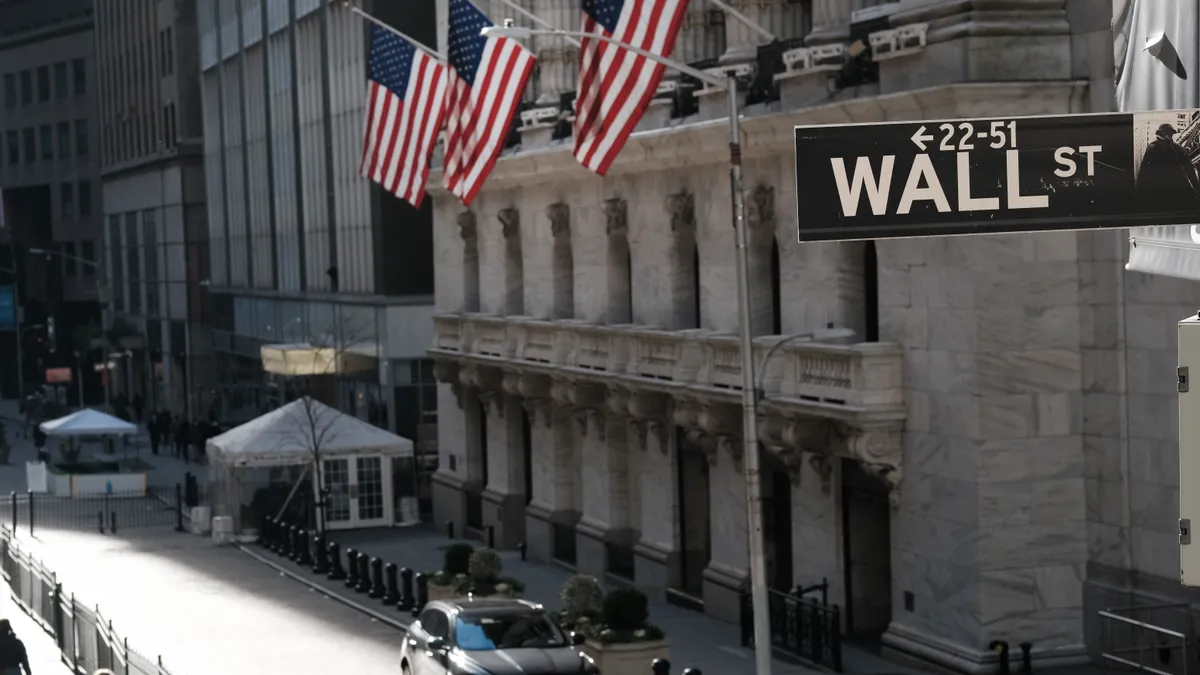Potential charges of perjury against former Trump Organization CFO Allen Weisselberg should not impact presiding judge Arthur Engoron’s impending ruling in the New York civil fraud case against ex-president Donald Trump and his company, attorneys asserted in emails contained in court filings Wednesday.
A plea deal reported by the New York Times would require Weisselberg to plead guilty to charges of perjury related to the ex-CFO’s testimony in the civil fraud case. In the wake of the report, Engoron on Tuesday asked parties in the case before him to submit information about whether there is a deal between Weisselberg and the Manhattan District Attorney’s Office in the works and whether the ex-CFO is admitting to lying under oath during the civil trial.
In its response, the New York Attorney General’s office said it is not involved in any negotiations and is “unaware of what specific trial testimony may be the subject of the plea negotiations or whether Mr. Weisselberg has conceded that he testified falsely,” according to an email from attorney Kevin Wallace, a lead prosecutor in the civil case. The AG’s office also “does not believe this development should result in any delay of a final decision,” Wallace wrote.
Meanwhile, Trump defense attorney Alina Habba argued that the reports of a potential perjury charge against the ex-CFO “should not influence Your Honor’s perception of Mr. Weisselberg’s credibility as a witness or otherwise affect the ultimate outcome of this case” in her Wednesday response email to the judge.
A long-time employee of the Trump Organization, Weisselberg’s testimony on the stand regarding disputed property valuations at the heart of the case is one of many factors Engoron will weigh as he drafts his ruling. The civil fraud case alleges that Trump, alongside other key individuals in the Trump Organization including Weisselberg, fraudulently inflated the ex-president’s net worth in order to obtain bank loans on more favorable terms.
Engoron, who has already ruled the organization is liable for fraud, could potentially levy a $370 million fine against the organization, as well as hand down a lifetime ban from the state’s real estate industry for Trump, Weisselberg and ex-controller Jeff McConney, as requested by the NY AG. Though it’s unclear how the reported perjury negotiations will ultimately impact the ruling, they once again shine a light on the ex-CFO’s overall credibility as a witness.
“Obviously, the Judge has to decide on the credibility of witnesses,” Peter Tilem, senior partner at Tilem & Associates, told CFO Dive in an emailed response to questions. “If he hears that a Government witness perjured himself that can affect the weight he gives to that testimony or he could decide to ignore that testimony entirely.”
The reports of perjury raise several issues for the court, including determining if anybody in the AG’s office is of the opinion that Weisselberg perjured himself at the request of Trump, Michael Bachner, partner at the law firm of Bachner & Associates, told CFO Dive via email in response to questions. Weisselberg’s attorney, attorneys which called him to the stand “or even became aware of perjury’ are also obligated as officers of the court to notify the court of false testimony, he said.
“That could certainly influence whether or not Court felt that any type of punitive damages may be appropriate,” Bachner wrote, adding that the court could potentially have the right to strike Weisselberg’s entire testimony.
“It would also go into question whether he should believe anything Weisselberg may have testify to, and completely strike it from anything related to his ruling,” he said.
Engoron in his Tuesday email wrote that the reports call other areas of Weisselberg’s testimony into question and that he “may use this as a basis to invoke falsus in uno,” a legal doctrine that argues a witness who has testified falsely in one area cannot be deemed credible when giving testimony in any other area.
Weisselberg’s credibility has already faced scrutiny throughout the course of the trial; a Forbes article accused the ex-CFO of lying following his testimony surrounding the Trump Tower triplex in October, prompting NY AG attorneys to flag omitted data provided by the Trump Organization in reference to the case. Weisselberg has already plead guilty to charges of tax fraud as part of an earlier agreement with the Manhattan DA.
In his Wednesday response, Wallace argued that the reports of potential perjury should not delay Engoron’s ruling in part because “the record already demonstrates that exculpatory testimony from Mr. Weisselberg cannot be relied upon,” he said. Weisselberg’s testimony about his lack of involvement surrounding the size of the triplex was “contradicted by contemporaneous documents” as well as other court testimony, he said.
Trump defense attorney Habba argued that Weisselberg is entitled to a presumption of innocence, and that it would be “wholly improper, and unconstitutional, for this Court to presume that Mr. Weisselberg engaged in any criminal wrongdoing in Your Honor’s courtroom based solely on the publication of an unsourced and unverified news article. For this same reason, invocation of the doctrine of falsus in uno would be entirely inappropriate with respect to Mr. Weisselberg.”
In a separate emailed response, Trump defense attorney Clifford Robert argued that the NY Times’ report “simply does not provide any principled basis for the Court to reopen the record or question the veracity of Mr. Weisselberg’s testimony in this case. Indeed, we respectfully submit that the Court’s request for comment on this speculative media account is unprecedented, inappropriate and troubling.”
In a Thursday reply to Robert, Engoron noted that he has not taken, does “not plan to take, and did not suggest or hint that I would take the Times article into consideration in my findings of fact. Similarly, I have not planned, do not plan, and did not suggest or hint that I would invoke falsus in uno based on the story.”
Any such action would be based on Weisselberg’s trial testimony or a guilty plea, Engoron said. However, “if, tomorrow, Mr. Weisselberg publicly confesses to having committed perjury about a significant matter in the case before me, or if he pleads guilty to such perjury at any time before I issue my final decision, I will research and consider what the law allows,” the judge wrote.
On Weisselberg’s part, the perjury deal could potentially see him serving a term in state prison if he pleads to felony perjury, CFO Dive previously reported. His felony conviction would also serve as a bar to him getting licensed in the state’s real estate industry, Bachner told CFO Dive.























